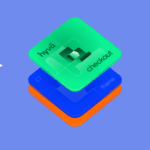Online service
Online services ( abbreviation: ISP) can be divided into different categories on the basis of their different service focuses. Basically, an online service is a commercial provider that offers its consumers dial-up access to a (dedicated/open) computer network, as well as its own content on this network. There are network providers, i.e., providers that make networks available both for the World Wide Web and for internal company intranets (a non-public computer network). Furthermore, there are the categories web space provider and content provider. A web space provider provides access, storage space, services and e-mail addresses for a web presence (e.g. websites, virtual servers, own Internet domains). Content providers, on the other hand, specialize in qualified content such as offering news, audio and moving image content on the Internet (ex: newspaper/magazine publishers). Another category of online services is the application service provider. This online provider makes software components available over a network for a fee.
Liability of online services:
Until a few years ago, the liability of online services (also: providers) for illegal content on websites that they technically maintain or operate was controversial and virtually unresolved in legal terms. The Telemedia Act has been in force since 2007. According to this law, the party liable is the natural person or legal entity that makes its own or third-party technical media available for use or provides access to these telemedia. The provisions of the German Telemedia Act (TMG) provide for graduated liability, taking into account the respective degree of involvement in legal infringements on the Internet. Furthermore, the extent of liability depends on the different categories into which online services can be divided (e.g., network providers, web space providers, content providers, application service providers). For example, a content provider is always fully liable, as it is responsible for its own information that it makes available for use.
Internet access through online services:
The service of Internet access is provided by online services through the provision of Internet connectivity, i.e., the transfer of IP (“Internet Protocol Datagram”) packets to and from the Internet. This transfer can take place, for example, via radio technology, dial-up lines, leased lines or broadband access. Depending on the size of their own network on the Internet, providers of online services in this area can be divided into the categories “Tier 3” (small local operators), “Tier 2” (operators of large, supraregional networks) and “Tier 1” (operators of global online services).










